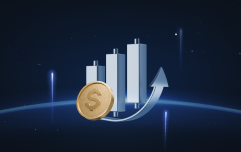A 100 USD banknote on top of Argentinian pesos. (Photo by Luis ROBAYO / AFP) (Photo by LUIS ROBAYO/AFP via Getty Images)
AFP via Getty Images
The stunning, unexpected victory of President Javier Milei’s coalition in Argentina’s congressional elections will pose a crucial test: Can policymakers in the U.S., Japan and Europe finally understand inflation before disaster strikes?
Inflation has been around for thousands of years, and yet, astonishingly, it persists despite its pernicious impact on a country’s economy and social fabric. Even governments, such as the U.S., that sincerely vow they’re against it, end up letting it happen.
Such a destructive phenomenon is not without precedent. It took thousands of years before the connection was made between mosquitoes and malaria, one of history’s biggest killer diseases.
There’s hardly a country today that destroys its currency through inflation more routinely than Argentina. Until WWII Argentina was one of the richest nations on the planet. Then it succumbed to massive, vote-buying spending and inflation, which turned it into a thoroughly corrupt economic basket case with declining living standards.
Javier Milei was an outsider when he won Argentina’s presidency in November 2023 by promising to slash spending, sharply downsize government and replace the peso with the dollar. Within months he dramatically shrank the country’s bloated government and balanced the once hopelessly deficit-ridden budget. Inflation came down dramatically.
But Milei didn’t keep his promise to junk the peso and replace it with the greenback. He fell into the clutches of the IMF, which is routinely guilty of gross economic malpractice. Especially egregious is the IMF’s addiction to currency devaluations. Lowering the value of a currency is the very definition of inflation.
Keeping the peso instead of getting rid of it landed Milei in trouble and led to a sharp election setback in August in the country’s largest province.
Peso inflation has come down from the hideous levels since Milei took office, but it still remains high. Its value has been falling on foreign exchange markets, a sure sign there’s trouble ahead. Fortunately for Milei, voters in the congressional elections decided that whatever their misgivings might be, they would stick with their president.
To shore up the peso—and, obviously, the pro-free market and pro-U.S. Javier Milei—the Trump Administration is readying assistance of $20 billion, while pressuring private lenders to pony up another $20 billion.
Saving the peso is a hopeless task. You can stabilize it for a while, but no one believes the stability will last. It never does in Argentina.
What’s crazy is that this possible $40 billion is enough to buy up the entire peso monetary base of Argentina. Therefore, there is no excuse not to abandon this peso mission impossible and simply do what Milei originally promised: Throw the peso into history’s dumpster and dollarize the economy.
By the way, both Ecuador and El Salvador dollarized their economies years ago with great popular success. Even leftist governments haven’t tried to bring back their traditional domestic currencies.
By dollarizing his economy, Milei can also get rid of destructive capital controls and counterproductive export taxes. While he’s at it, he should politely tell the IMF to take a hike and reduce income and business tax rates to Swiss-like levels. Then Argentina would once again become what it hasn’t been for a century: a dynamic, regional- and global-leading economy.
Unfortunately, the U.S. proposal for Argentina reflects the bad monetary thinking that prevails in much of the world, which highlights the need for strong and stable currencies.
Right now, currency values are weakening in the U.S., Japan and Europe. Unless arrested, we will face another bad round of monetary inflation, with all the baleful economic and geopolitical consequences that will follow.
Source: https://www.forbes.com/sites/steveforbes/2025/10/30/javier-mileis-victory-poses-a-crucial-test-for-world-leaders/


